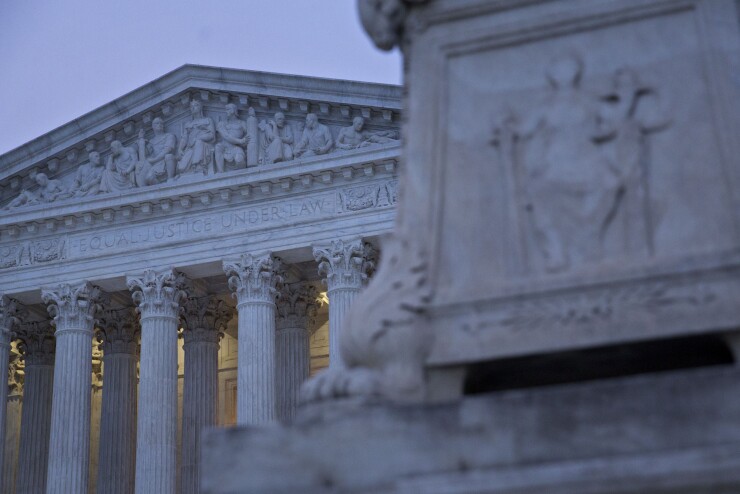Want unlimited access to top ideas and insights?
The U.S. Supreme Court has lately polarized Americans with controversial verdicts on abortion, guns, climate change and more. Another case on its docket, by contrast, will get intense scrutiny mainly from
Bittner is a businessman and a dual citizen of the U.S. and Romania. He used to live and work in Romania and, naturally, had to open financial accounts there. What he apparently didn't know — many expats don't — is that he had to declare all these accounts every year to the U.S. Treasury's Financial Crimes Enforcement Network, on a form colloquially known as the FBAR.

All parties in the case agree that Bittner's failure to make timely and proper disclosures was "non-willful," meaning unintentional. Even so, the penalties are stiff. One appeals court assessed his fine at $50,000, or $10,000 for each of the five years in which the FBAR was omitted. Another court put the punishment at $2.72 million, or $10,000 for each account that should have been on each FBAR, each year.
The first amount is painful, the second ruinous — and, frankly, insane. The Supreme Court now
This question mark about penalties is one of many ambiguities about FBARs. But even FBARs are just the tip of the iceberg.
Americans abroad suffer
Some expats, for example, find themselves owning plain-vanilla mutual funds registered in their host country — employers sometimes put such investments into occupational retirement schemes by default. To the IRS, these are PFICs, or "passive foreign investment companies" — a synonym for toxic. The resulting paperwork is considered the most complex in the entire American tax code, and the taxation tantamount to confiscation.
Depending on what an American expat does next, there's more misery to come. If she marries a "foreigner" (the reason why many Americans move overseas in the first place), she may face nightmares about joint accounts, inheritance and more, even before considering any children. More punishment awaits those who own a foreign business or do pretty much anything interesting.
U.S. expats may also struggle to open — or keep open — financial accounts abroad. Foreign banks and brokers must report on "U.S. persons" (citizens or Green Card holders) to the U.S. Rather than run the risk of American retaliation for errors and omissions, many financial institutions prefer to have no American customers at all. This particular problem is a consequence of the Foreign Account Tax Compliance Act (FATCA), notorious Obama-era legislation that has upended the lives of many U.S. expats.
But the original reason for the entire hairball of complexity is the peculiar American way of taxation, which is in effect unique in the world (only Eritrea has something vaguely similar). That approach is called citizenship-based taxation (CBT). It means that a person's passport or Green Card, not the place of residence, determines tax status and liability.
The unintended consequences are legion. One is to snare "accidental Americans" in the nets of the IRS and FinCEN. These are people who — usually because their parents happened to be in the US when they were born — have U.S.
This (largely coincidental) intertwining of citizenship law and tax law over the decades has made the U.S. unique. All countries want to crack down on tax cheats who hide money in offshore accounts — that's why ever more governments are agreeing to share financial information with one another. But only the U.S. hits millions of expats who have modest assets and little clue every time it targets rich and sophisticated tax dodgers living stateside.
In a sign of growing desperation, a guerrilla insurgency of litigation is now forming from Canada to Israel to Europe. In the U.K., a woman named
In France, Fabien Lehagre, born in the U.S. but French by upbringing, founded the
In the Netherlands, a court recently prohibited a local bank from closing the accounts of Accidental Americans in the country. And the European Parliament sent
But all these efforts only treat the symptoms of the underlying aberration, which is citizenship-based taxation. So another group of lawyers — including Marc Zell, an Israeli-American, and John Richardson, a Canadian-American — wants to challenge the constitutionality of CBT as such, at least in its current form. They're now building their case.
There are
The nine robed justices now have an opportunity to send the first small sign that they got that message. Alexandru Bittner shouldn't be financially ruined just because he made unintentional errors while he lived abroad. Nor should any other American — or indeed anybody at all.





